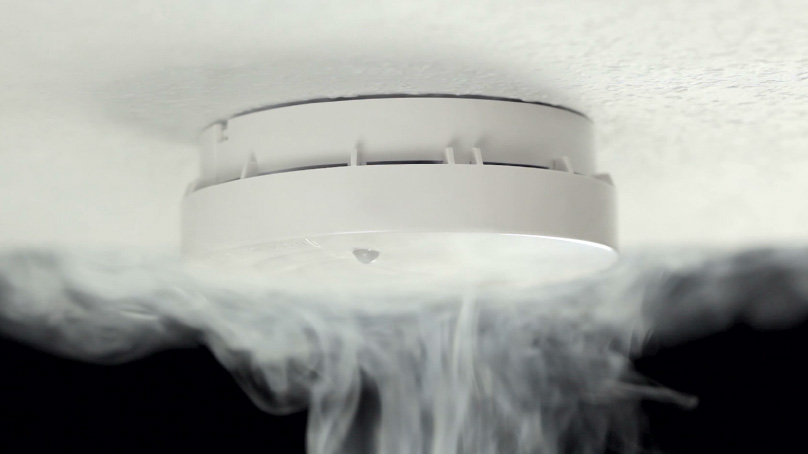
Smoke alarms, carbon monoxide alarms, and fire alarm bells save lives. In an emergency situation, seconds count and knowing what sounds to listen for, and how to respond, can help keep you and your loved ones safe. During Fire Prevention Week, it is a good time to review what the different sounds mean.
If you hear a beep, beep, beep – get on your feet
Your smoke alarm can detect smoke before you can. There could be a fire nearby and it’s time to get outside safely to your outdoor meeting place and call 911. Every room should have two exits (a door or window). If you encounter smoke, stay low to reduce your exposure.
If you hear four quick beeps – that’s your carbon monoxide alarm
Carbon monoxide is a deadly invisible gas that can make you very sick or even kill you very quickly without even knowing it’s there. If you alarm goes off, you need to safely get outside into fresh air as soon as possible. Don’t go back inside because you could become quickly overcome. Call 911 and wait for help to arrive.
If you hear a chirp – it’s time for a change
Smoke and carbon monoxide alarms chirp periodically when their batteries are low. If they aren’t replaced promptly, they can’t alert you to danger.
We know residents are more vulnerable to fire when they are asleep so make sure to test your alarms monthly by pressing and holding the test button. If it’s working, you should hear the alarm sound.
Remember to change your batteries once a year and replace the whole unit once a decade for smoke alarms, or as per manufacturer’s instructions for carbon monoxide alarms.
If you need help installing a smoke alarm, qualified homeowners can apply for a Winnipeg Fire Paramedic Service member to install one free-of-charge via our SAFE Family Program.
If you hear a loud bell or tone – that’s a fire alarm bell
Fire alarm bells are found in schools, workplaces, apartments, or other higher-occupancy buildings. Grab your keys and leave the building in a safe, orderly fashion. Don’t open hot doors.
Find another way out or return to your suite if all exits are blocked. Call 911 to let them know you are trapped and use a flashlight or brightly coloured cloth to signal from the window. Fill any cracks in the door to keep smoke out and wait for help to arrive.
